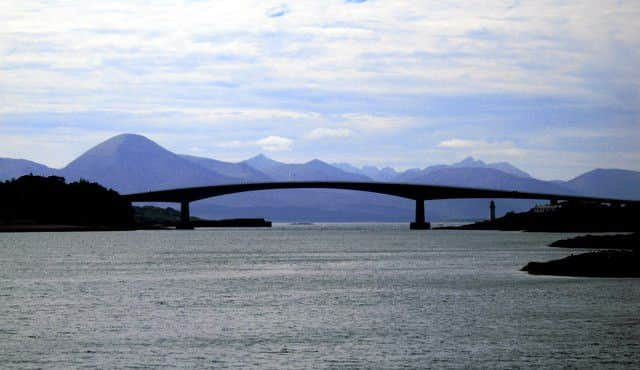Volunteers campaign for fairer delivery charges to islands


Volunteers on the Isle of Skye have held discussions with private courier firms over the sums charged to transport goods to the Inner and Outer Hebrides.
Residents regularly complain that the fees do not reflect the difficulty in reaching the islands, and point out that Royal Mail prices are often significantly lower.
Advertisement
Hide AdAdvertisement
Hide AdThe Portree branch of Citizens Advice Scotland (CAS) began a local campaign in 2010 on the issue, which led to discussions with courier firms and Scottish Government ministers.
A report on the issue, Postcode Penalty, was published in 2012 and found that more than one million Scots living on the mainland and islands were “being ripped off” by excessive delivery charges.
Four years on, Steve Clarke, one of the CAS volunteers who started the campaign, told The Scotsman islanders were still being over-charged.
“There are some retailers who do now realise that you can get items to Skye for a reasonable price, without having to charge for boats when we have a bridge” he said.
“But the campaign needs to continue. Just last week, for example, I ordered a spare part for our stove online. The part, which weighs 600 grams and cost £11, suddenly became £23 when I entered my address. They could have sent it via Royal Mail for £3.30.
“That’s the sort of extra charge we encounter on a regular basis.”
Clarke, a retired teacher, moved to Skye with his wife from Suffolk in 2003 and began volunteering at their local CAS branch shortly after.
Following a local campaign in 2010, CAS launched a nationwide survey the following year on delivery charges to remote areas.
Advertisement
Hide AdAdvertisement
Hide AdBased on more than 3000 responses and over 500 online companies, it found many Scots faced paying £19 extra when buying goods online. The problem affects businesses as well as households.
Consumers in island communities face a postcode penalty of nearly £19 extra to deliver goods they buy online – a 500 per cent mark up on the standard delivery price.
Clark insists many Skye-based courier services delivery value for money, but problems arise from firms based far away who lack local knowledge.
“As well as complaints from neighbours, it’s a problem we experience ourselves,” he added. “You can’t get away from it.”
A CAS spokeswoman said: “The problem of high delivery charges for consumers in rural and remote areas continues to cause hardship for people right across Scotland, impacting higher in the Scottish Highlands and islands more than in other areas of the UK.
“Our campaign has had some success in persuading individual delivery companies to change their ways. For example fewer retailers now refuse to deliver to remote areas than was the case in 2012, and fewer add a surcharge. Online retailers are also more likely to comply with regulations. These are important successes for the campaign.
“However, where a surcharge is applied, Highland and island consumers pay even more than they did three years ago, despite average delivery charges falling in real terms. So these consumers pay roughly four times the average costs for delivery.”